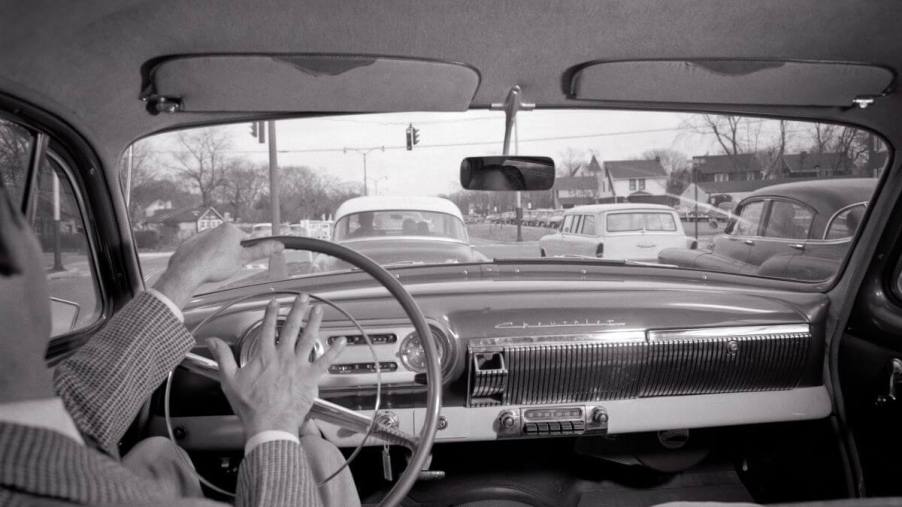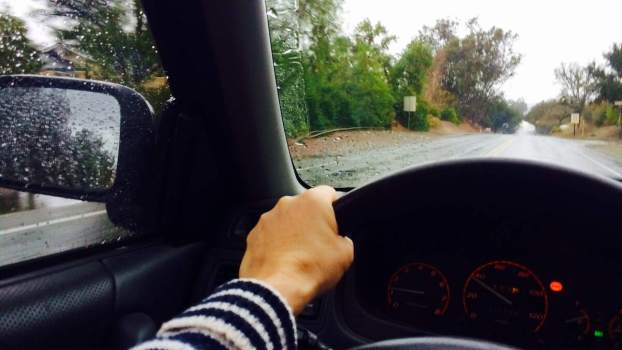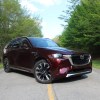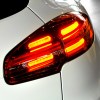
Does Honking Accomplish Anything, or Does It Just Make Drivers Angrier?
How do you react when someone honks their horn at you? Memes have made their way around social media describing a situation where an impatient driver honks at a person when the traffic light turns green. The caption generally states that the honking of the horn makes the driver at the front of the line angry and prone to taking action, such as sitting at the light through a few rounds.
Car horns are meant to be a tool to improve car safety and avoid car accidents, but when a horn sounds, many drivers react with anger and frustration, which could lead to road rage. Does honking the horn accomplish anything or negatively impact car safety on the road?
The history of the car horn
Car horns have been part of the automobile industry for as long as cars have been on the road. AAA tells us early drivers were expected to honk the horns as a warning to pedestrians and other drivers of their arrival at an intersection. In fact, not honking was considered rude and classless. That’s certainly not the case today.
One of the most famous car horns was the Klaxon Horn, which emitted the “ahooga” sound that we remember from the Ford Model T, used during its production time. Ford used this horn in the Model A as well.
Early car horns came in three varieties: an air horn with a plastic bulb for the driver to squeeze, an exhaust horn with cuts made in the exhaust pipes, and an electric horn, which we still have today.
The car horn is one of the few vehicle features that hasn’t evolved much over the years, but some automakers have made adjustments. Cars in Asia tend to use tungsten instead of steel in car horns because it lasts longer, and drivers tend to honk more in Asia than in other parts of the world.
When and when not to honk your horn
Honking your horn in some situations can be detrimental to its effectiveness. If you are angry and honk out of aggravation, you’re more likely to create a negative situation that leads to road rage rather than simply getting the attention of another driver.
Direct Auto Insurance offers some suggestions regarding the use of your car horn. Some of these are:
Times you should honk your horn
- When a car crash is imminent
- When the driver in front of you isn’t paying attention at a stoplight
- When a pedestrian is in danger
- To alert other drivers of danger
- As a show of support
Times you should not honk your horn
- When another option to gain the person’s attention is available to you
- When you’re upset
- To scare animals from the road
- To hurry others along
- When greeting someone you know
In addition to the right times to honk your horn, there’s an etiquette to how you honk. Sallas Auto Repair outlines this as short and long beeps. A few short beeps are a way to get other drivers to pay attention without being rude, while long beeps often mean anger, annoyance, and frustration. The shorter beeps increase the effectiveness of honking the car horn.
Don’t let road rage increase your honking frequency
Drivers in various parts of the country may view honking differently. In some areas, honking at all can be considered rude, while in faster-paced, heavy-traffic cities, honking is more acceptable. Regardless, you don’t want to become a driver who uses their horn more than others out of frustration. You mustn’t let your frustration on the road turn into aggravation and road rage.
Smart Drive Test tells us that some driving instructors teach students three things about people honking out of frustration.
- They can wait for you
- They can crash into you
- They can go home and cool off
When someone honks at you out of frustration, it’s important to take a deep breath, relax, and go about your day without making the situation worse. The worst thing you can do is allow another’s anger to turn into your own road rage.





